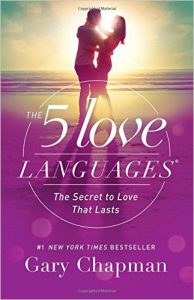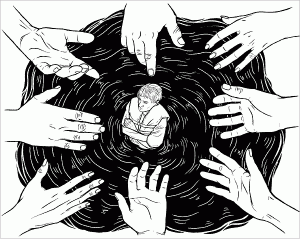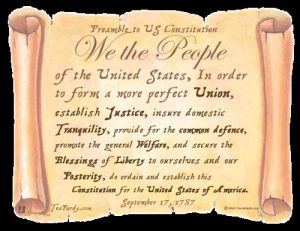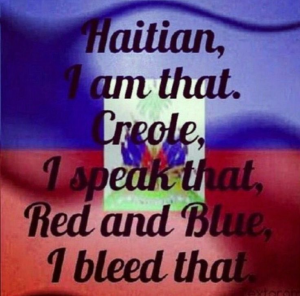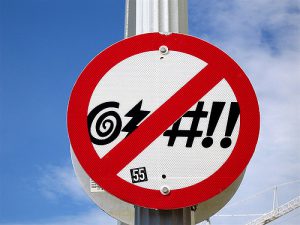by Robine Jean-Pierre
Last night after a long day at school, as I slipped under the covers and into bed, I did something that was long overdue: I looked up a Hannah Montana song on YouTube. I started with “This Is the Life” and next thing you know, I was a dozen songs deep and brimming with romance, joy, teen spirit, excitement, and needless to say, overwhelming nostalgia. I knew that once I had started it would be hard to stop; even though it was approaching 2 a.m. I just kept checking what was in the “Up Next” list under each video and picking the one I wanted to hear most, jumping from stone to stone like a child in a stream.
I love the musical composition of lots of Disney teen artists’ songs, like those of Miley Cyrus, Demi Lovato, the Jonas Brothers and Selena Gomez. Sure, teen pop is not the most diverse genre out there; the songs do tend to fall into a predictable pattern. But something about these songs was so familiar, so cozy; the lyrics spoke to my heart and even the instrumentation seemed so rich that I couldn’t resist soaking in it all.
Recording one of my own songs (Perfect Love) in a friend’s home-based studio last week made me realize just how much goes into even the simplest modern song. We had started with a preliminary acoustic version–just one layer of guitar, my lead vocals and my own backup vocals harmonizing–but I realized that if I wanted to take it to the next step in a future recording session, I would have to be thorough and specific about what I wanted. When you really listen to a typical song today there is so much going on, so many layers and nuances and effects.
Getting back to my Disney favorites, the beautiful thing about these songs was not just the instrumentation and composition, but of course, the lyrics. So many of today’s songs are too simplified–not that many words, or not much meaning or neither, just vain repetition. That’s why I hold dear to my heart the songs that have a pure, positive, universal message and are not just about sex, drugs and money. Many of these Disney songs talked about innocent romance punctuated by either fear, excitement or both (see Hannah Montana’s “He Could Be the One,” and Demi Lovato’s “Catch Me”); about having standards upon entering a relationship (see Vanessa Hudgens’ “Say OK”); about the love of a father and daughter through the years (Billy Ray Cyrus and Miley Cyrus had a few, such as “I Learned from You”); about friendship and love as a whole, not just romantic love (Hannah Montana’s “You and Me Together” and “Bigger Than Us”). These topics are not necessarily simple, but nearly anyone could relate and benefit from listening.
Some songs that really spoke to me that night were Hannah Montana’s “Make Some Noise” and Demi Lovato’s “La La Land.” “Make Some Noise” has the kind of message you don’t hear enough in mainstream music:
“Don’t let anyone tell you that you’re not strong enough
Don’t give up, there’s nothing wrong with just being yourself,
that’s more than enough
So come on and raise your voice
Speak your mind and make some noise…”
Sometimes we need this reminder, teenagers and grownups alike. Hannah Montana’s music was geared toward predominantly young preteen and teenage girls, I presume, and they are often in need of all the support they can get; they receive a lot of pressure from mainstream media to be something they’re not, and to keep quiet if their opinion is not popular. “La La Land” is a very feisty, edgy, playful song about someone who’s famous but not afraid to be herself, someone who doesn’t let celebrity go to her head. One verse says “who says I can’t wear my Converse with my dress? Oh baby, that’s just me.” The chorus says,
“Some people say I need to be afraid
of losing everything
because of where I
had my start and where I made my name
but everything’s the same
in the la la land machine.”
Demi Lovato had my heart from very early in her career and her voice is as amazing as her songwriting skill (which is an understatement). To see that she started strong, went on a decline, battled her demons and overcame to continue making powerful music is a tremendous feat. Maybe these very words played a part in bringing her back to full recovery, as she realized that she couldn’t let anything change her for the worse. (It would be unjust to not recommend her comeback song, “Skyscraper.”)
I can unashamedly say that many of those songs don’t need to stay in my childhood– they are just as relevant, some even more relevant than before (particularly for the love songs now that I’m of age and engaged). Seeing that some artists like Miley are grown now, and have made drastic changes in their career in terms of target audience, message and style, I could only hope that they are not ashamed of their past, and that they don’t dismiss the beautiful songs they made popular as childish, boring, or cliché. Their words still speak to me.







